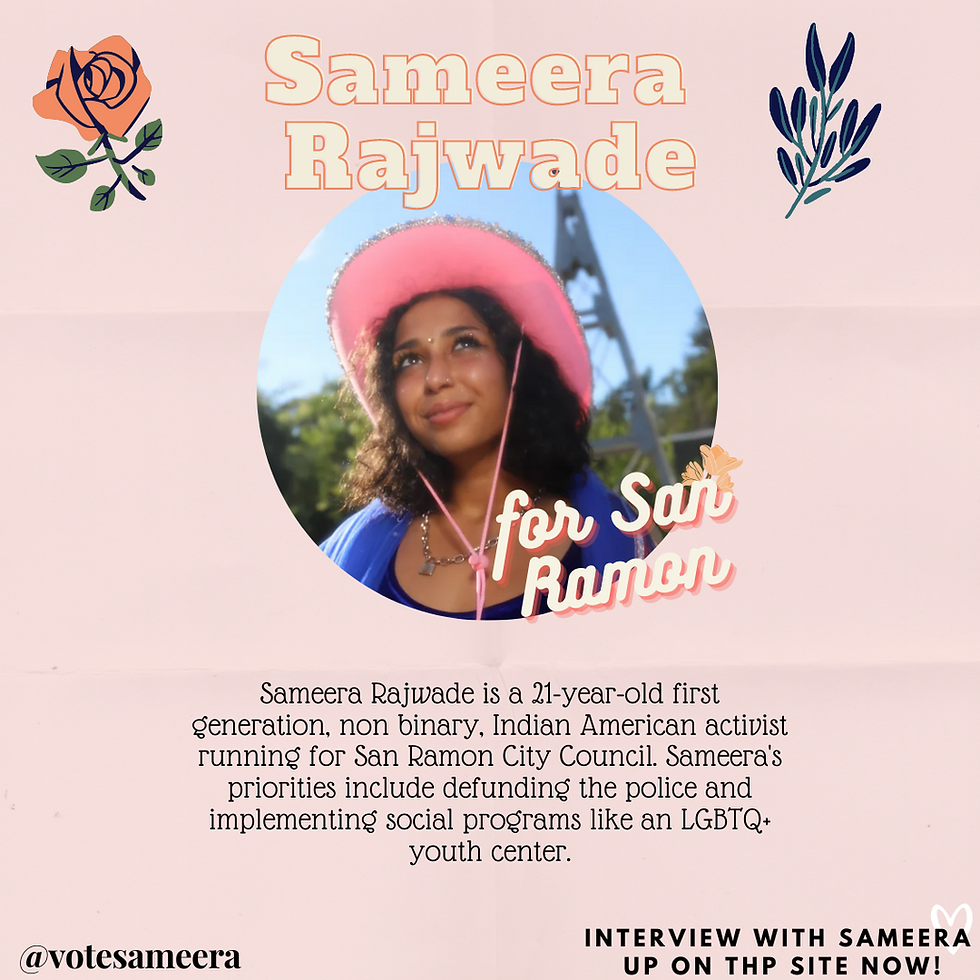Interview: Boston's First Black Female Council President in Her Own Words
- Sep 8, 2018
- 4 min read
Updated: Sep 4, 2019
The Homegirl Project chatted with Boston City Councillor Andrea Campbell about the need for diversity in politics and what it takes to be a leader that encourages change.

SH: How did your background and family inspire you to run for Boston City Council?
AC: What ultimately made me run for City Council was the death of my twin brother, Andre. Andre had an autoimmune disease called scleroderma and while incarcerated, he passed away. His loss had a tremendous effect on me. I questioned: how and why could two twins born and raised in the City of Boston have such different life outcomes? That question fuels my work every day on the City Council. I want to ensure that all residents in our City have access to the same resources and opportunities to succeed that I had growing up in Boston, regardless of their zip code, skin color or gender, so we don’t continue to see disparate life outcomes like mine and my brother’s.
SH: As city councilor, you find importance in creating conversations around criminal justice. Why are these issues such a priority to you?
AC: When I joined the Council and had the opportunity to chair the Committee on Public Safety, I insisted we expand it to the Committee on Public Safety and Criminal Justice. Criminal justice is an important issue to many residents in my district, which is predominantly a district of color and one of the lower-income districts in the City of Boston, and an important part of why I ran for City Council. My father was incarcerated for the first eight years of my life, and my two brothers cycled in and out of the criminal justice system during their young adulthood, so I deeply relate to families who are impacted by incarceration and I want to bring their voices and stories to the Council.
SH: As a councillor, how do you hope to impact the criminal justice system?
AC: While there have been members of the Council who care about criminal justice in the past, it is such an important part of my story and motivation for wanting to run for office -- to make sure we address the school-to-prison-pipeline, increase opportunities for young people to keep them out of the system, increase funding for re-entry services for residents returning from incarceration, increase job opportunities for residents with a CORI -- the list goes on! This is an example of why representation matters. We need diverse City Councils and legislatures so that the people writing and impacting policy have a diversity of experience to inform that policy, and give a voice to issues that may have been overlooked or ignored.

SH: Why do you think it has taken so long for African Americans to be represented in the Boston City Council?
AC: In 2009, Ayanna Pressley was the first woman of color (and African American woman) elected to the Boston City Council. Now, in 2018, we have a historic six women of color serving on the Boston City Council, and I have the tremendous honor of being the first African American woman to serve as President of the Council. It’s important that as we celebrate our progress, we also confront our country’s history of racism and exclusion of people of color from certain spaces, and the effects they had, such as voter disenfranchisement or a mistrust of government in communities of color. Not only were our elected officials historically white and male, but our institutions were as well, making it incredibly difficult for women and people of color to break in. As we see more barriers broken by black leaders, such as Barack Obama, or Deval Patrick, the first black Governor of Massachusetts, the network of support for candidates of color grows larger, and we are seeing more candidates of color running for office and winning.
SH: How important do you think it is to have more minority women in politics?
AC: It is essential. Representation matters in every industry, but it is especially important in our elected offices since they are so visible. When more women, and people of color, are represented in these spaces, we change the culture of workplaces that have traditionally served the interest of men, or those that hold the most privilege or power. As the City Council (and other elected bodies across the country) starts to look more like all of the citizens we were elected to represent, our conversations will focus more on issues that affect all residents, especially those whose voices were historically ignored. I am so proud that young girls growing up in Boston can see many different examples of female leadership on the City Council, so that they know that politics IS a space for THEM.

SH: Many of my female friends hope to become leaders in society like you. Do you have any advice for young girls who hope to run for a position in politics?
AC: First and foremost, be your authentic self. Find something you love to do, and go for it! Find good mentors, and invest in your education and your network. Talk to women who are in careers that you’re interested in, learn as much as you can. Get involved in your community. Before I ran for office, I completed a program called Emerge that helps women build the skills they need to run a successful campaign. There are more people out there than you know that will be willing and ready to give you advice and help you succeed!
SH: Lastly, who inspires you to do what you do as City Councilor?
AC: I first and foremost am a woman of faith, and I use my faith to guide me on the tough days! I am inspired by people, especially women, that challenged that status quo, like Shirley Chisholm, the first black woman elected to Congress, and Oprah, of course! I am also inspired by my constituents. Every day I meet people in my community who are creative, innovative, resilient, and working hard to improve their neighborhood, get a good education for their kids, or expand programs that serve others. Listening to others’ stories and experiences, especially those that are different from my own, is not only inspiring but also important in order to be a good legislator and leader.




Comments